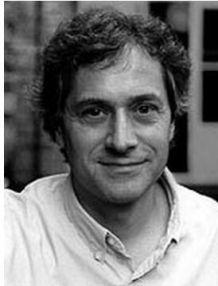
Studio Ghibli's new film,"The Red Turtle," was unveiled at this year's Cannes Film Festival, and after its premiere, it was both critics and acclaimed, but either way, the film ushered in a new era for Studio Ghibli – the post-Miyazaki era. Michael Dudwitt, director of "The Red Turtle," is a Dutchman.
We'd be surprised that Studio Ghibli would look for an artist who wasn't Japanese or even had experience in making long-form animations as a director. Yes, "The Red Sea Turtle" was Dudwitt's first full-length animation, and before "The Red Sea Turtle", Michael Dudwitt had a total of 5 animation works, of which "Father and Daughter" reached the top in 8 minutes and 30 seconds. But Dudwitt is no longer a young man, not even a middle-aged man, born in 1953, he is 63 years old this year, according to Confucius, he is already in the stage of sixty and obedient.
Or we might wonder why, before The Scarlet Turtle, he had no intention of animating long-form films, and why did an artist who had no intention of animating long-form animation direct this "Red Sea Turtles"? In a roundtable interview at Cannes, Du DeWitt revealed that the money, technology, and waiting needed to shoot a feature-length animation before made him lack the desire and motivation to work on the project, and Ghibli's sincere invitation shattered his hesitation. As for why Studio Ghibli chose Michael Dudwitt, we may be able to see a glimpse of it in Dudwitt's animated short films. "Oriental simplicity, tranquility and subtlety, emotional delicacy, philosophical speculative meaning" These words can be used to describe Dudwitt's independent animation, "Father and Daughter" is a reflection on death and watch, "The Monk and the Flying Fish" revolves around such a philosophical question "desire", the fish is a symbol of desire, the monk chases the fish and cannot, and finally enters the void world with the fish, "The Aroma of Tea" is more abstract and difficult to understand than the first two, Buddhism says "one flower and one world, one leaf and one bodhi", what the director wants to say is not important. The key is what we can draw from it. The distinctly oriental sensibilities in Dudwitt's work made Studio Ghibli fall in love with him, without even considering other candidates.
Dudwitt said that "spirituality is the most subtle part, with good emotions and natural spirituality can make the film very wonderful", Dudwit made a rough story about survival on a desert island into delicate, gentle and wonderful, "Red Turtle" is not like "Robinson Crusoe" is a story about survival, but in the exploration of man and nature, the emotions that people have in nature and people and time, as the director said, "spirituality is the most subtle part", minimalist style, slow plot, Simple love reveals this subtle, natural spirituality unintentionally. It is worth noting that "The Red Sea Turtle" continues Dudwitt's old style - there is no dialogue in the whole text, and the audience needs to be prepared for such a movie.
In a time of creative troubles, Michael Dudwitt rides along a small river in a small town in southwestern France, where night falls and no one is around, and the occasional fish that jumps out of the water and birds perched on the branches of the tree are fascinating places along the way.
Author: Flowers a few trees